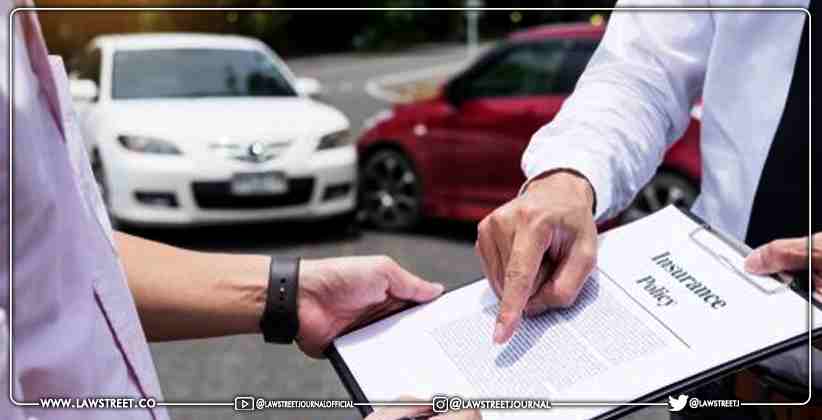The Supreme Court stated that an insurance claim can be denied if a vehicle is used/driven without a valid registration, as this would be a fundamental violation of the terms and conditions of the insurance contract.
The bench of Justices Uday Umesh Lalit, S. Ravindra Bhat, and Bela M. Trivedi observed that when an insurable incident occurs that may result in liability, there should be no fundamental breach of the terms of the insurance contract.
The court ruled that if the vehicle was driven/used without a valid registration on the date of theft, it constituted a fundamental breach.
FACTS OF CASE:
The policyholder had purchased a new Bolero with a temporary registration in this case. He travelled outside his residence after his registration expired. He parked outside the guest house where it had been stolen.
He claimed insurance, but it was denied because the vehicle's temporary registration had expired.
Following that, he approached the District Forum, requesting that the insurer pay him the sum insured for the vehicle with a rent of 1,40,000/-, as well as relief for mental anguish and litigation costs.
He filed a complaint with the State Consumer Disputes Redressal Commission after his complaint was dismissed.
Allowing the appeal, the state commission stated that the insurer could not reject the insured's genuine claim on technical, petty, and frivolous grounds of lack of a permanent registration certificate from the competent authority and thus escape its liability to compensate the insured for the loss of the vehicle.
The insurer's revision petition before the National Consumer Disputes Redressal Commission was dismissed, so it turned to the Supreme Court.
CONTENTIONS OF BOTH THE PARTIES:
The appellant insurer contended that because the vehicle in question had no registration, it constituted a fundamental breach of the policy, entitling the insurer to repudiate the claims under it, citing the Supreme Court decision in Narinder Singh Vs. New India Assurance Co. Ltd (2014) 9 SCC 324 and an NCDRC order in Naveen Kumar Vs. National Insurance Company Ltd.
On behalf of the complainant, it was argued that the decision in Narinder Singh (supra) concerned a claim for compensation for a damaged vehicle as a result of an accident, rather than theft of a vehicle, and thus was inapplicable to the current case.
OBSERVATION AND JUDGEMENT:
The court noted that in Narinder Singh, it was held that driving a vehicle on a public road without registration is not only an offence punishable under Section 192 of the Motor Vehicles Act, 1986 but also a fundamental breach of the policy contract's terms and conditions. The court also noted that the NCDRC had ruled in Naveen Kumar (supra) as follows:
- If a vehicle without a valid registration is or has been used/driven on a public place or any other place that would constitute a fundamental breach of the terms and conditions of the contract of insurance even if the vehicle is not being driven at the time it is stolen or is damaged
- If a vehicle without a valid registration is used/driven on a public place or any other place, it would constitute a fundamental breach of terms and conditions of the policy even if the owner of the vehicle has applied for the issuance of a registration in terms of S.41 of the Act before expiry of the temporary registration, but the regular registration has not been issued.
Taking into account the facts of the case, the bench concluded that the NCDRC order is liable to be overturned. While allowing the appeal, the court made the following observations:
- In the present case, the temporary registration of the respondent's vehicle had expired on 28-07-2011. Not only was the vehicle driven, but also taken to another city, where it was stationed overnight in a place other than the respondent's premises. There is nothing on record to suggest that the respondent had applied for registration or that he was awaiting registration. In these circumstances, the ratio of Narinder Singh (supra) applies, in the opinion of this court. That Narinder Singh (supra) was in the context of an accident, is immaterial. Despite this, the respondent plied his vehicle and took it to Jodhpur, where the theft took place. It is of no consequence, that the car was not plying on the road, when it was stolen; the material fact is that concededly, it was driven to the place from where it was stolen, after the expiry of temporary registration. But for its theft, the respondent would have driven
- What is important is this Court's opinion of the law, that when an insurable incident that potentially results in liability occurs, here should be no fundamental breach of the conditions contained in the contract of insurance. Therefore, on the date of theft, the vehicle had been driven/used without a valid registration, amounting to a clear violation of Sections 39 and 192 of the Motor Vehicles Act, 1986. This results in a fundamental breach of the terms and conditions of the policy, as held by this Court in Narinder Singh (supra), entitling the insurer to repudiate the policy.
Case - United India Insurance Co. Ltd vs Sushil Kumar Godara Citation- LL 2021 SC 522








